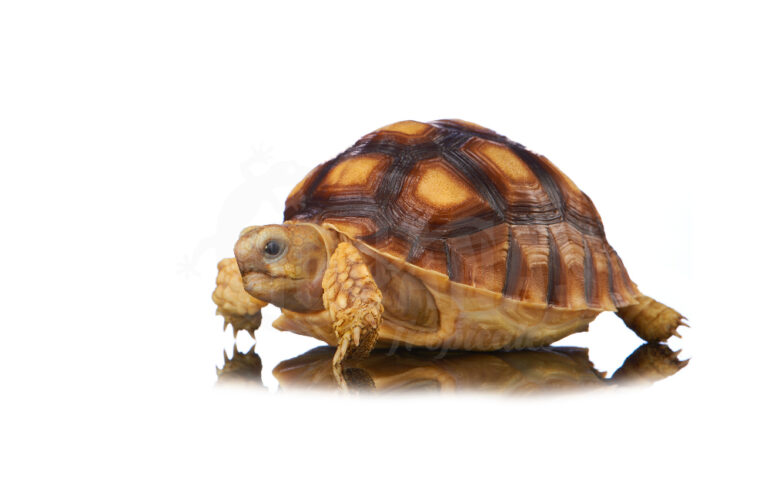Diet:
Sulcata tortoises are herbivores and require a diet high in fiber and low in protein. They should be fed a variety of grasses, hay, and leafy greens such as kale, collard greens, and dandelion greens. They should also be given access to calcium supplements, either in the form of cuttlebone or a calcium powder sprinkled on their food.
Housing:
Sulcata tortoises require a large enclosure with plenty of space to move around. For young tortoises, a 40-gallon enclosure is recommended, while adults require a minimum of 8 feet by 8 feet of space. The enclosure should also have a basking area with a heat lamp and a UVB light to provide necessary heat and UVB radiation. The substrate should be a mixture of sand and soil, and the enclosure should be kept at a temperature range of 75-85°F during the day and 65-75°F at night.
Hydration:
Sulcata tortoises require access to clean water at all times, both for drinking and soaking. A shallow dish of water should be provided in their enclosure, and they should be allowed to soak in warm water for 20-30 minutes a few times a week.
Health:
Sulcata tortoises are generally hardy and healthy, but they can be susceptible to respiratory infections and shell rot if their enclosure is not kept clean and dry. Regular veterinary check-ups are recommended to monitor their health and catch any potential health issues early.
Handling:
Sulcata tortoises are generally not very social animals and do not enjoy being handled. When necessary, they should be handled gently and supported from underneath to avoid any stress or injury.
In conclusion, Sulcata tortoises require a large enclosure with proper heating and lighting, a high-fiber herbivorous diet, and access to clean water and calcium supplements. With proper care, they can live for 50-80 years in captivity.

